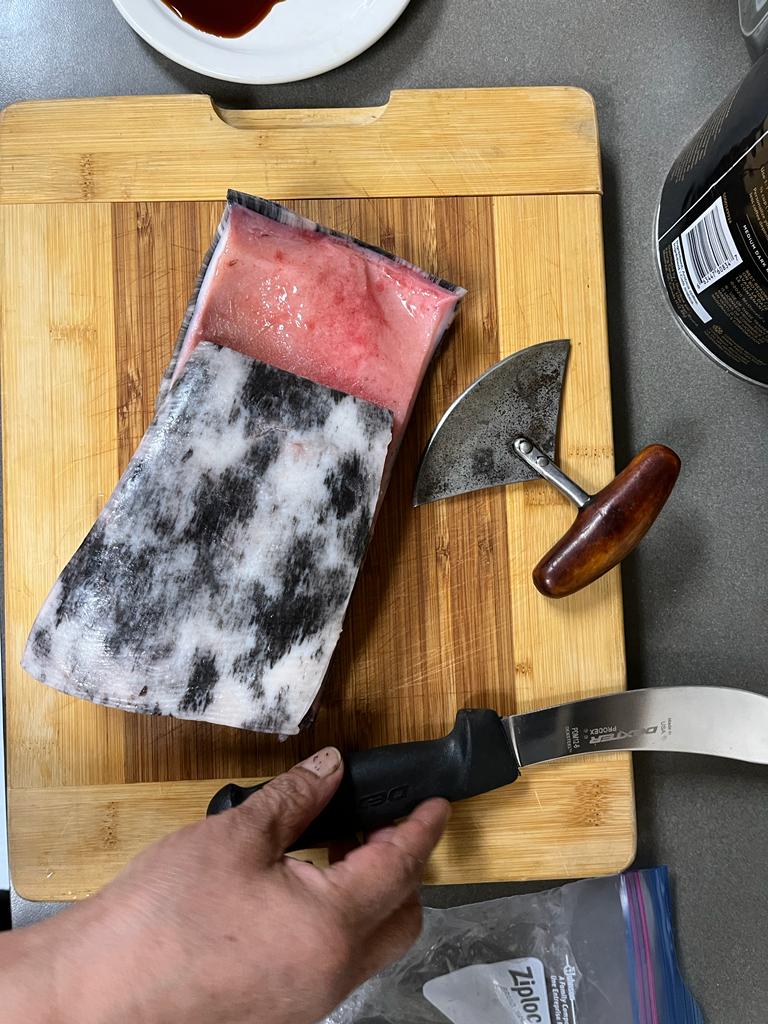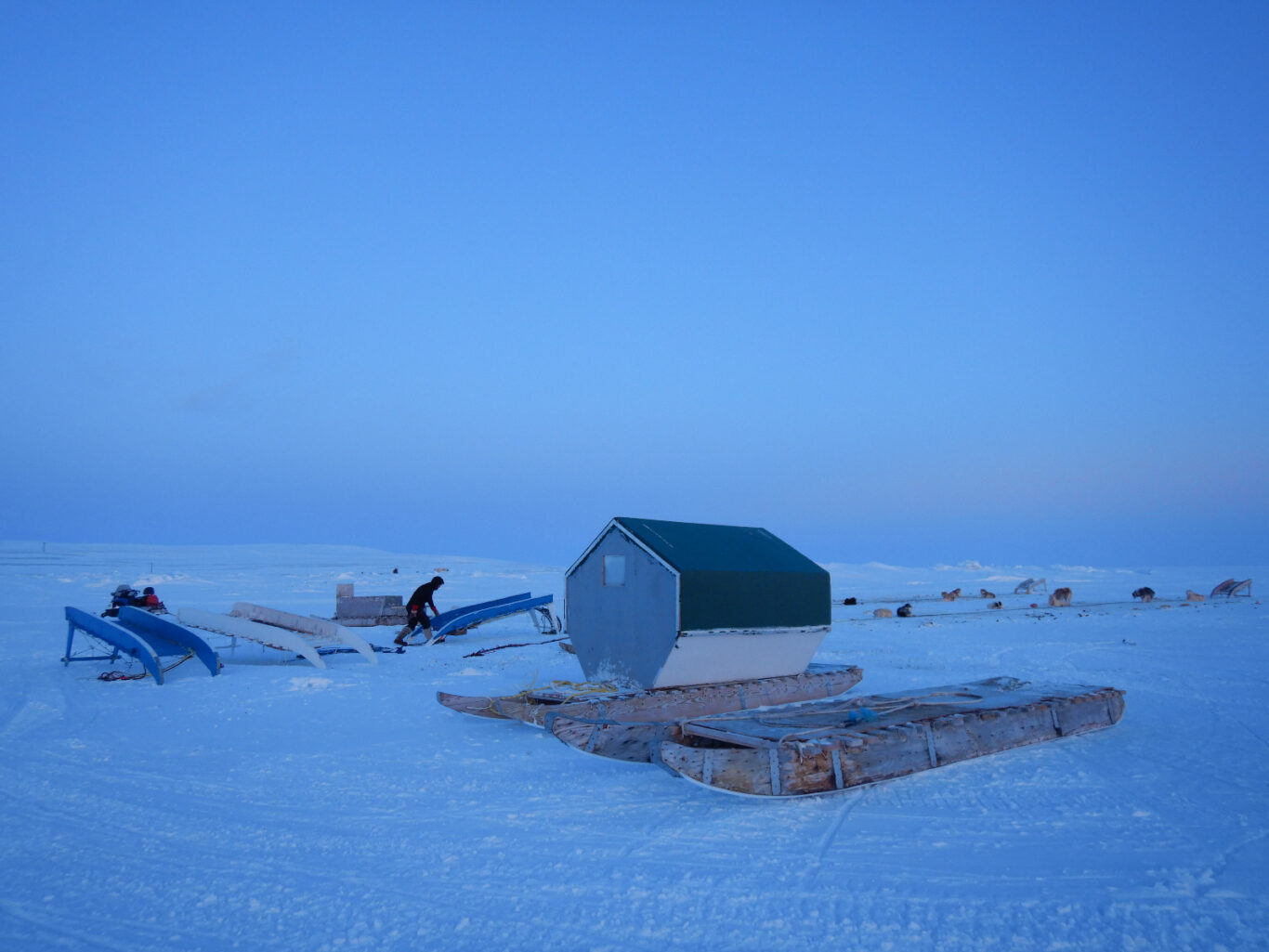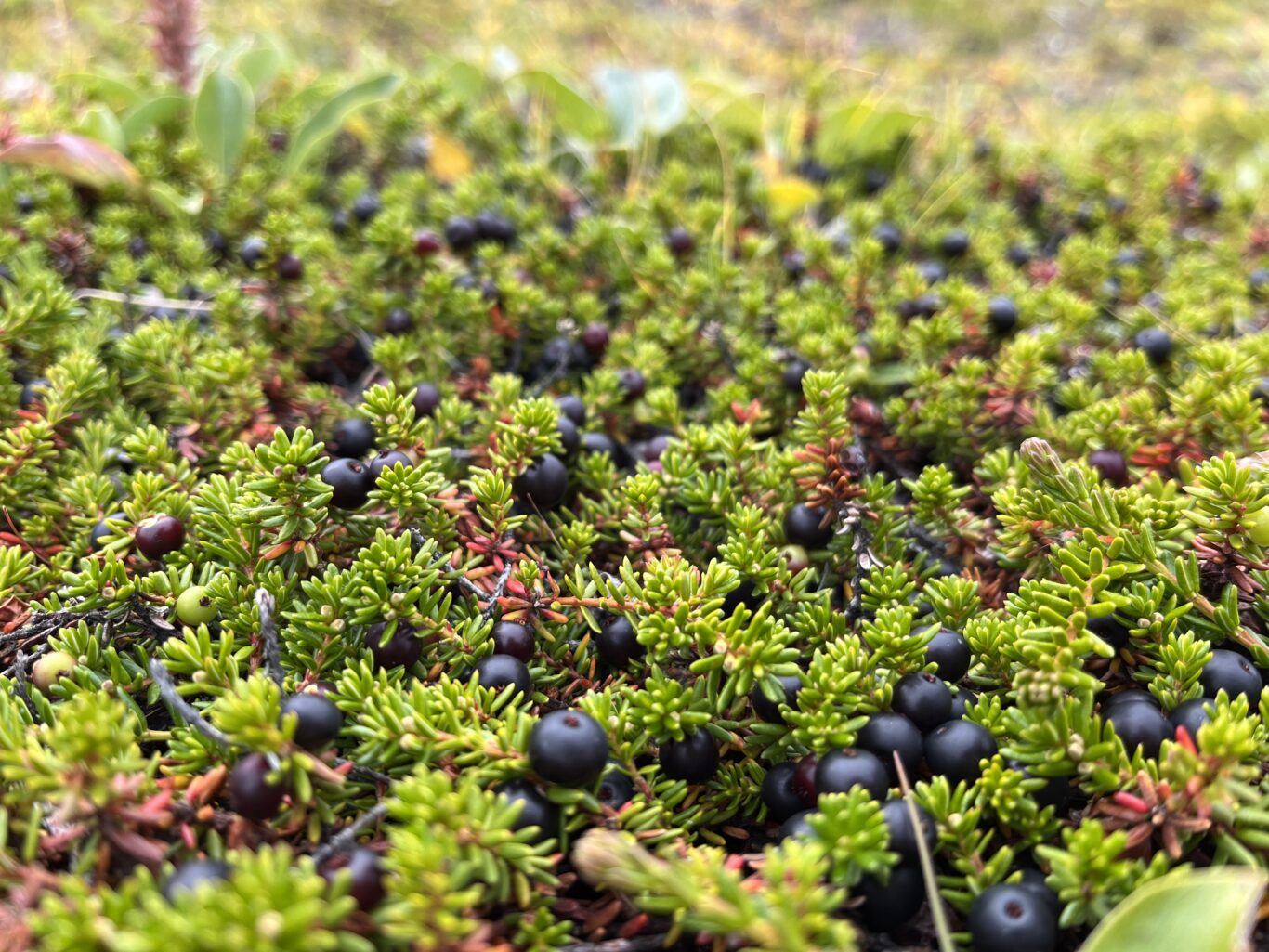Food Sovereignty and Access to Country Food
By Katrin Schmid
There is increasing emphasis on food sovereignty, which includes the right to healthy, culturally appropriate food harvested through sustainable methods. Country food is more than just food; it strengthens cultural identity and community connections. The conversation around food security and sovereignty in Nunavut is inherently connected to the logistics of transportation.
“It makes you feel good too, when you share it to the Elders and give it away. Makes the food last longer, when it’s shared, because it’s spread out and it’s feeding other people.” – Hunter, Iqaluit, February 2023.
The following are some of the main challenges highlighted by community members:
– Barriers to Access: Country food is hard to obtain due to disconnected sharing networks, no dedicated stores, no way to connect with sellers (no internet access, limited financial means), and limited species availability (e.g., caribou, narwhal, muskox).
“I got nothing to use back here in Iqaluit, so I don’t go hunting here. Only when I go Pang. No skidoo, no ATV, no hunting partners…” – Resident of Iqaluit, February 2023.
“The two of us don’t really have barriers to go out and get country food like some people do, because of the boat and he has the transportation and the knowledge to do it. Whereas some people just don’t have the means or the know-how.” – Jeanine Nowdluk, Iqaluit, February 2023.
“If we have a hard time catching one certain animal, and one community sees more of this animal and some communities would want to trade, it would be a good way for communities to get different country food, help each other out. And like everyone else, you get tired of eating the same thing over and over, so we would trade country food.” – Mark Amarualik, Resolute Bay, April 2023.
– High Cost of Harvesting: Hunting is expensive, making it difficult for many residents to afford the materials for hunting, or have time off work to hunt. The NTI and Baffinland gas vouchers have been very helpful, as well as the Nunavut Harvesters Support Program and Nauttiqsuqtiit.
“To be able to go hunting, it’s very expensive. The boat, outboard, the skidoo, the four-wheeler, the guns, the ammunition, and then the food to go out with. If you’re going to be going out like approximately a week to two weeks, it’s going to cost you a minimum of $5,000 just to go out there. Because the fuel that you need to be on for that long, the food that you leave for that long, the ammunition, and anything that helps you need to be out there. That’s how much it costs.” – Simeonie Akpalialuk, Iqaluit, February 2023.
– Commercial Sale and Distribution Challenges: While legal, selling country food commercially is financially difficult due to high cargo costs and limited subsidies. Stigma is still attached to those who sell instead of sharing, though selling country food is becoming more common. However, delays, losses, and damage to country food shipments are common, leading to spoilage and financial losses.
“We have tried to order [country food] before and there was a cardboard box and it had some holes and a few openings and that had a lot of problems. It was also freezer-burnt. We couldn’t eat it. It was no good because it was freezer burnt. No money back, nothing.” – Peter Inootik, Pond Inlet, March 2023.
“One thing we need is a new cargo facility because now there’s a fight for the perishable stuff and the increase of just regular other goods that are coming through the airport and the provider just can’t manage it all without damages being incurred. (…) If the supply chain was better modified for [South to North movement] there could be maybe some improvements you see on the quality of food when it ends up in the consumer here.” – Paul Crenson, Government of Nunavut Manager of Airport Operations, Iqaluit, December 2023.
– Community Freezers and Storage: Essential but often unreliable due to maintenance issues and lack of capacity. Long periods of freezer-outage make storage a challenge, and limit who can store country food. Functioning freezers are becoming more important with climate change.
“And then there is the added dynamic of climate change warming things up and this affects choice too because not everything can be stored for the same amount of time when it’s not cold anymore. It takes a lot of planning.” – Government of Nunavut employee, Iqaluit, May 2022.
“There’s not much freezer space up here at the airports. And they send it during winter times, they should at least put it in a bin instead of a cardboard box because you can just put it outside and let it freeze.” – Peter Inootik, Pond Inlet, March 2023.


